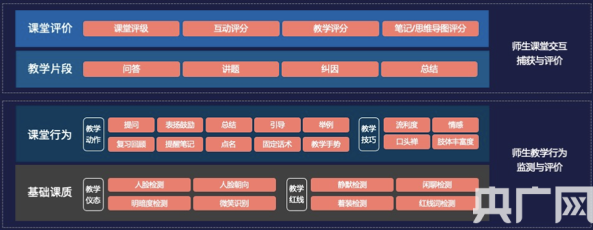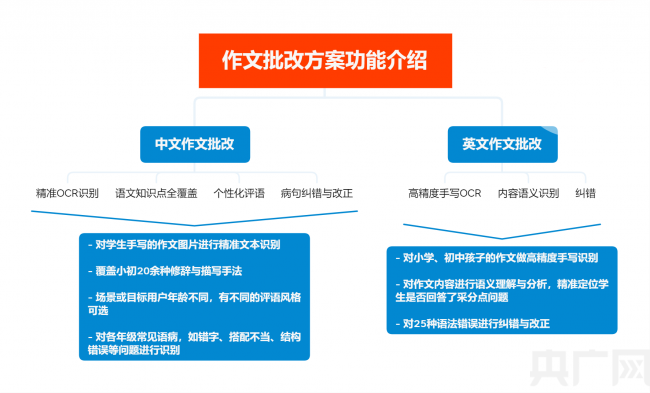




On June 23, Beijing (Reporter Chen Xiangrui, Correspondent Liu Yan) reported that the 22nd International Conference on Artificial Intelligence in Education (AIED 2021), a premier global academic conference for AI education, recently commenced. TAL Education Group showcased China's development potential in AI-powered education by presenting five academic papers at the event. Paper authors from TAL AI Academy engaged in-depth academic discussions and technical exchanges with global experts, sharing their cutting-edge research achievements in Natural Language Processing (NLP) and multimodal learning domains.

AIED is a top international conference in the field of educational applications. Organized by the International Association of Artificial Intelligence in Education (IAIED), it is renowned for providing intelligent systems and cognitive science methods for high-quality research in educational computing applications. The five accepted papers this time are all based on TAL Education Group's practical application scenarios, featuring research achievements in NLP (Natural Language Processing) and multimodal learning that have been implemented in actual business operations. These studies cover diverse topics including automated essay grading, intelligent problem-solving, teaching behavior analysis, instructional quality assessment, and personalized teacher-student matching.
Breakthroughs in NLP and multimodal learning, landing in multiple teaching scenarios
The teaching scenario of online education is vastly different from traditional offline education. Many teachers accustomed to face-to-face instruction in physical classrooms often struggle to fully control online classes when teaching through cameras on devices like computers due to lack of experience, frequently missing optimal timings for delivering instructional cues such as encouraging students or reminding them to take notes. The AI Research Institute of TAL Education Group proposed an automated system to capture crucial teaching instructions and provide feedback, aiming to enhance teachers' online teaching capabilities. This concept was realized in the paper "Multi-Task Learning based Online Dialogic Instruction Detection with Pre-trained Language Models" accepted by AIED 2021. The instructional detection method proposed in this research has been implemented in TAL's self-developed GodEye classroom quality monitoring system, providing detection services for online teaching practices.
In the GodEye system, the performance of teachers and students in the classroom is presented in a data-driven manner, quantifying the overall course quality, teaching conditions, and student learning status, disassembling the classroom data, and facilitating the complete management of online classrooms.

System structure of GodEye classroom quality inspection solution
GodEye has been widely adopted in Xueersi One-on-One and other educational services. During the COVID-19 pandemic in 2020, the system analyzed over 4.6 million hours of online courses, providing foundational data support for enhancing teaching quality. After implementation, teachers showed improved timeliness in delivering instructional commands during online sessions. Taking the crucial teaching instruction "reminding students to take notes" as an example, sampling analysis revealed that as the number of usage days increased, teachers' frequency of issuing this reminder gradually rose, effectively ensuring the quality of online teaching.
Research results achieve many firsts, precisely matching teachers' and students' needs
It is reported that TAL Education Group's paper selected for this conference has introduced multiple industry firsts: the first modeling of teacher-student matching in online one-on-one teaching mode, achieving precise pairing of suitable teachers for each student by analyzing historical class information and teaching behaviors between teachers and students. Empowered by TAL's AI technology, this innovation enables accurate teacher-student matching and creates "thousands of personalized course variations" tailored to individual needs, accelerating the arrival of an era of truly personalized education.
TAL Education Group also pioneered a machine reading comprehension-based key point automatic assessment method for writing. Through machine reading and understanding of essay topics and student compositions, the system can output scores while highlighting key point coverage in student essays. This approach allows students to understand what constitutes correct writing methods, thereby helping them maintain good writing habits.
Additionally, this method can also inform students which key points were not addressed in their essays, helping them identify issues to avoid and refine their approaches, thereby enhancing their writing skills. Traditional automatic scoring methods only provide an overall content-level score, whereas detailed specific feedback typically requires human involvement. In comparison, the new technology developed by TAL offers users richer feedback while accelerating the evaluation process. The research achievement has already been implemented in the automatic essay scoring system for English composition grading projects.
Five Years of Dedication: TAL Education Group Achieves Remarkable Progress in AI
TAL Education Group's achievements in AI research stem from its deep understanding and emphasis on "AI + Education." In recent years, TAL has significantly increased its investment in AI R&D. Currently, it has developed over 100 AI capabilities across eight categories—including image processing, speech recognition, data mining, and natural language processing—tailored to educational scenarios. These innovations have led to more than 10 AI-driven solutions that span the entire teaching process, covering "preparation, instruction, practice, assessment, evaluation, and management." Many of these AI capabilities have been productized and are now widely integrated into TAL's internal operations.
For instance, TAL's AI-powered Chinese and English essay grading system not only assists teachers in identifying and correcting grammatical errors to enhance grading efficiency but also enables students to receive instant feedback on their writing.

Introduction to the function of correcting Chinese and English compositions
TAL Education Group, while prioritizing technological R&D and the development of fundamental research capabilities, remains committed to its original mission of "making education better." The company has established close industry-academia-research collaborations with prestigious institutions such as Tsinghua University and the Institute of Computing Technology, Chinese Academy of Sciences. Dozens of its academic achievements, born from addressing practical educational challenges, have been selected by top-tier international conferences including ICASSP, NeurIPS, AAAI, WWW, EMNLP, AIED, and NCME.At the recently concluded launching event for Beijing National AI Innovation Application Pilot Zone, TAL Education Group assumed the role of Vice Chairman Unit in the Beijing Artificial Intelligence Industry Alliance. As the only representative from the education technology sector among the alliance's leadership, the company is now tasked with advancing AI industry collaboration and ecosystem development, as well as fully supporting the sustainable and healthy growth of Beijing's AI industry.
As the contractor of the National New Generation AI Open Innovation Platform for Smart Education, TAL Education Group will continue to adhere to the principles of original innovation, application-driven development, and open sharing. We will undertake the responsibility of promoting the integrated development of AI and education, collaborating with industry partners to facilitate the intelligent upgrading of the education industry.
Source: China National Radio https://www.cnr.cn/swzg/gdxw/20210623/t20210623_525519913.shtml